

Seoul is a city of contrasts in which the ancient and the modern coexist in harmony. In one sense, it is a hi-tech 21st-century city awash with neon lights and the sights and sounds of a 24-hour metropolis, while at the same time, a city retaining the majesty and graceful ambience of ancient dynasties that once ruled over it. Like the river Han on which it sits, Seoul is constantly moving as it strides boldly into the future, yet simultaneously managing to keep one foot firmly entrenched in its historical past.
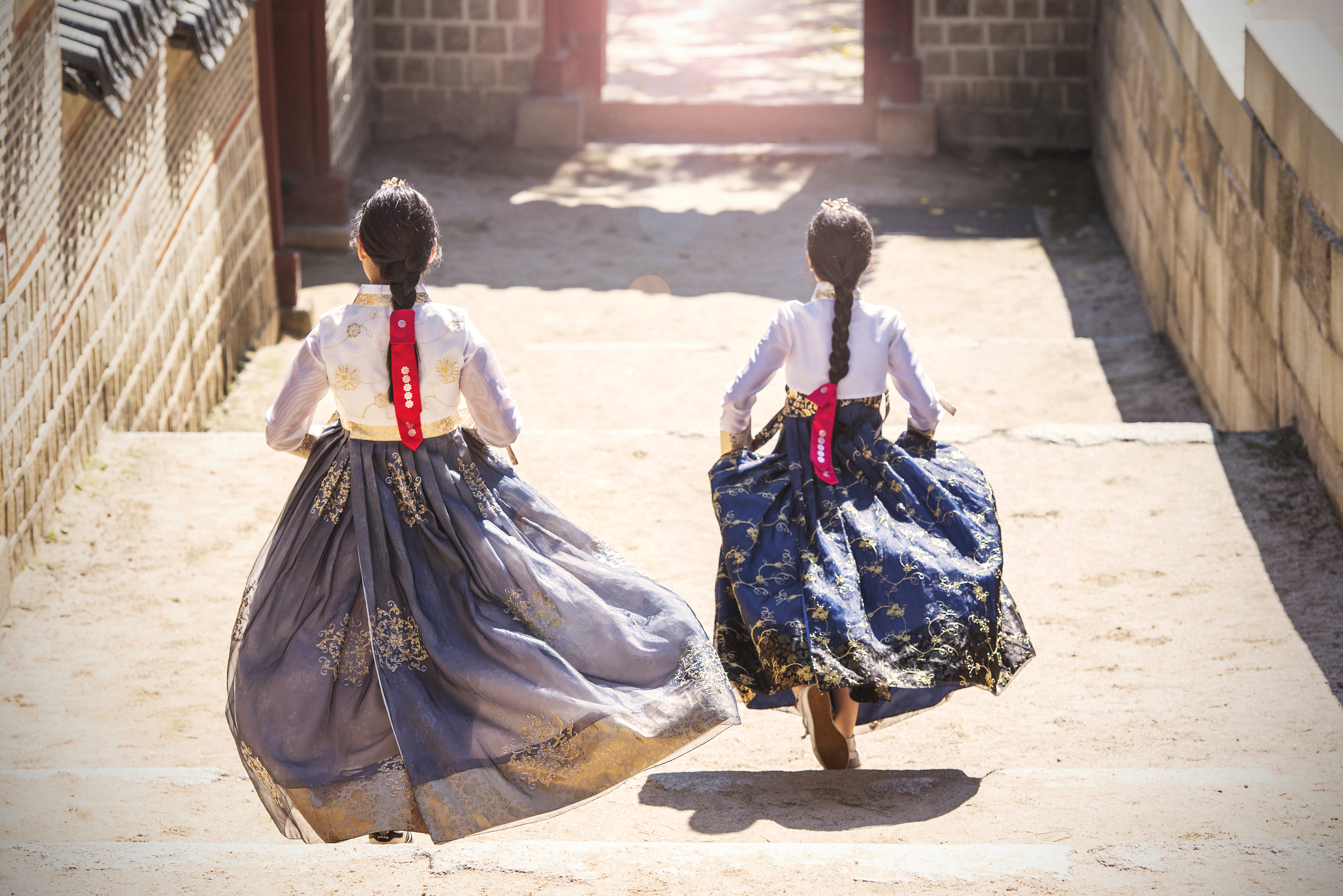 Savvapanf Photo/Shutterstock.com
Savvapanf Photo/Shutterstock.com
The City
The Jongno-gu area of Seoul is one of the city's most fascinating districts, symbolising the duality of Seoul as both ancient and modern. Here, the historic palaces and the old quarter of Insadong sit aside Daehakno and University St, the centre for alternative art brimming with galleries, theatres, restaurants, and bars. This dichotomy between the ancient and the modern is also seen in the district of Gangnam, where skyscrapers tower above the delicate architecture of Gyeongbukgung Palace. The city’s commercial centre, Gangnam, is more workmanlike than other areas of the city. However, like Myeongdong, the city’s financial district, Gangnam is also becoming known for its restaurants and bars.
Missing home? Then head for Itaewon - the international hub of Seoul, where expatriates, tourists and locals gather. It is known for its legendary nightlife where Western-style pubs and nightclubs proliferate. Failing that, a spot of retail therapy in the Namdaemun and Dongdaemun areas should certainly scratch that particular proverbial itch.
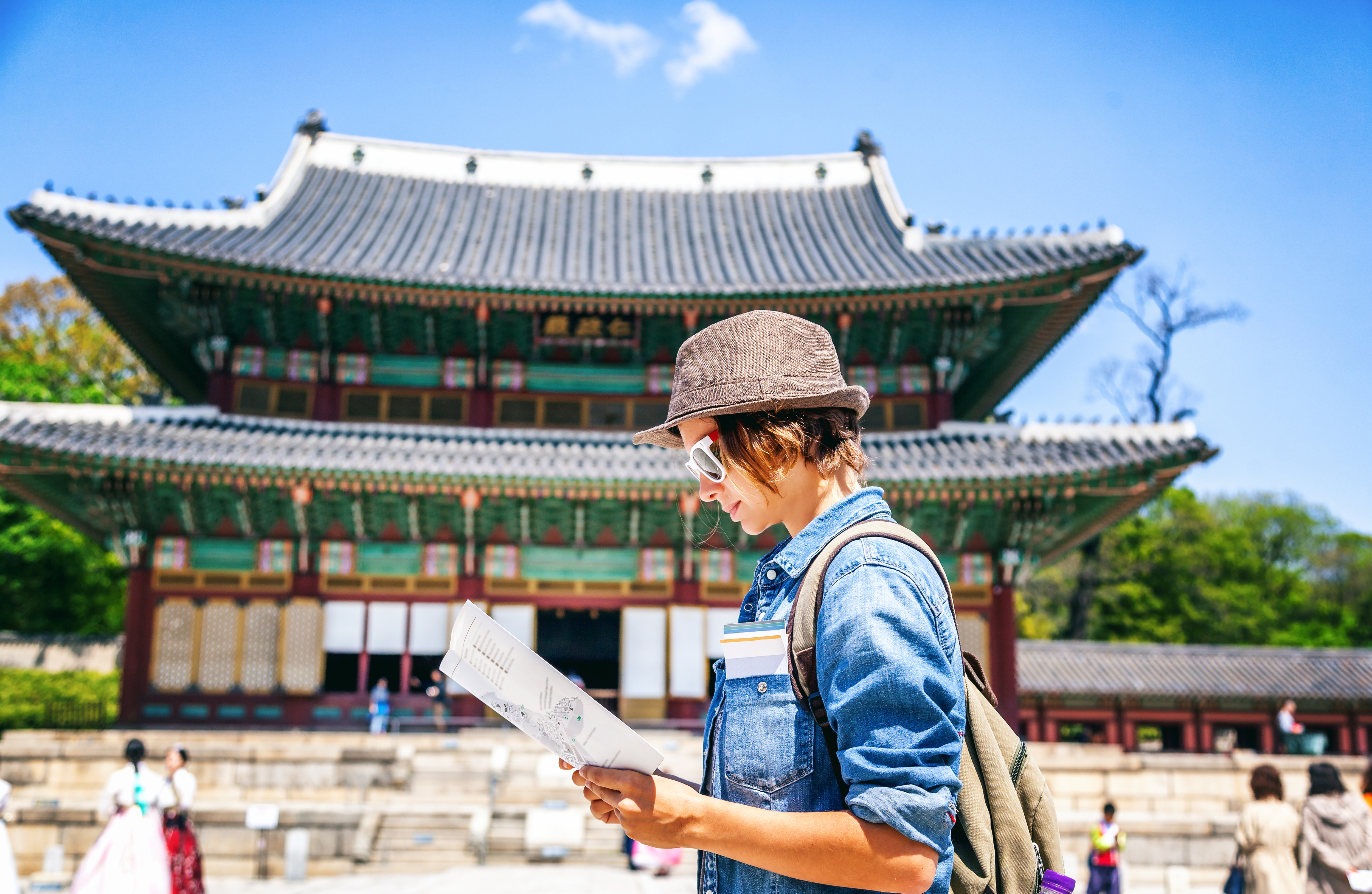 Olesya Kuznetsova/Shutterstock.com
Olesya Kuznetsova/Shutterstock.com
Do & See
As one of the largest cities in the world, Seoul offers visitors plenty to explore. Any traveller will find an activity to fit their taste - the Korean capital has everything from historical sites to museums, art galleries, recognizable landmarks, traditional parks and palaces, casinos (only open to foreigners!), theme parks and much more. Seoul certainly is one of those cities that boasts the thrilling variety a traveller craves.
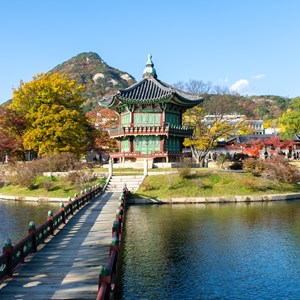 CJ Nattanai/Shutterstock.com
CJ Nattanai/Shutterstock.com
Gyeongbokgung Palace
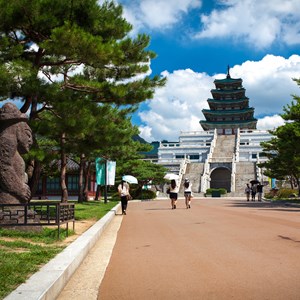 MOLPIX/Shutterstock.com
MOLPIX/Shutterstock.com
National Folk Museum Of Korea
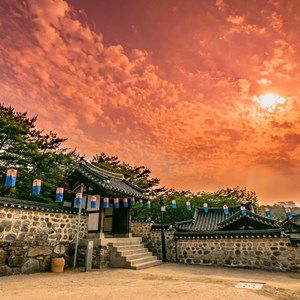 SiHo/Shutterstock.com
SiHo/Shutterstock.com
Namsangol Hanok Village
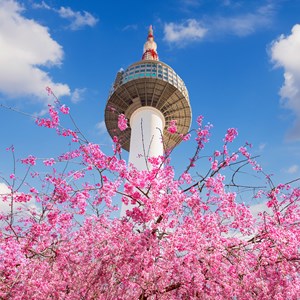 Guitar photographer/Shutterstock.com
Guitar photographer/Shutterstock.com
Seoul Tower
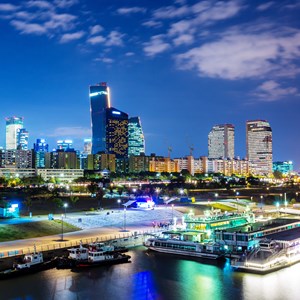 leungchopan/Shutterstock.com
leungchopan/Shutterstock.com
Hangang River Ferry Cruise
 Guitar photographer/Shutterstock.com
Guitar photographer/Shutterstock.com
Bukhansan Mountain National Park
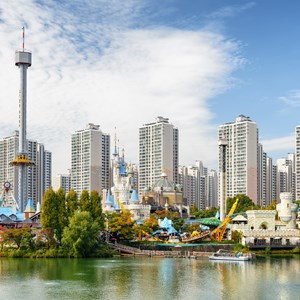 Efired/Shutterstock.com
Efired/Shutterstock.com
Lotte World
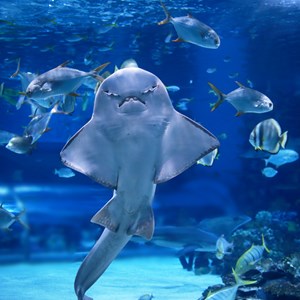 Olena Zaskochenko/Shutterstock.com
Olena Zaskochenko/Shutterstock.com
Coex Aquarium
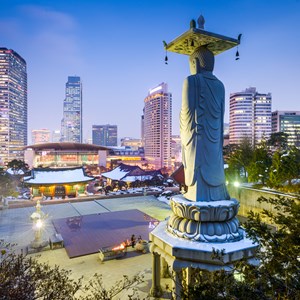 ESB Professional/Shutterstock.com
ESB Professional/Shutterstock.com
Bongeunsa Temple
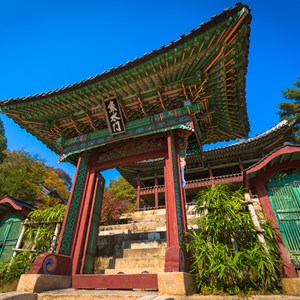 Alexander A.Trofimov/Shutterstock.com
Alexander A.Trofimov/Shutterstock.com
Changdeokgung
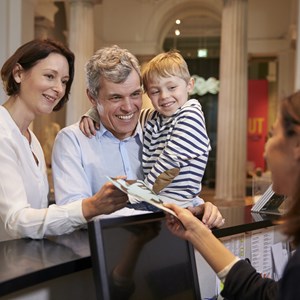 Monkey Business Images/Shutterstock.com
Monkey Business Images/Shutterstock.com
Trickeye Museum
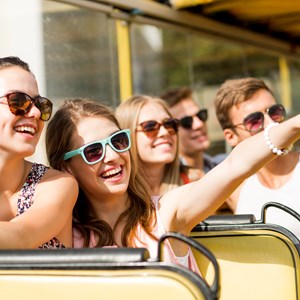 Syda Productions/Shutterstock.com
Syda Productions/Shutterstock.com
Seoul City Tour Bus
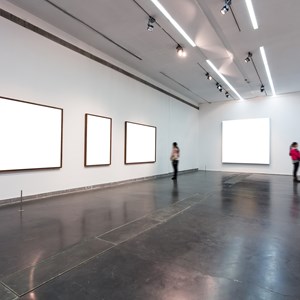 06photo/Shutterstock.com
06photo/Shutterstock.com
The War Memorial Of Korea
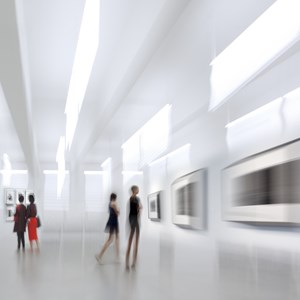 blurAZ/Shutterstock.com
blurAZ/Shutterstock.com
National Museum Of Korea
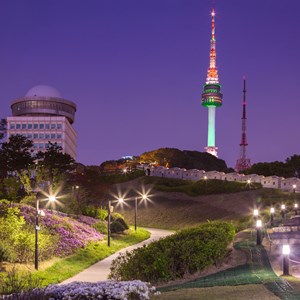 PKphotograph/Shutterstock.com
PKphotograph/Shutterstock.com
Namsan Park
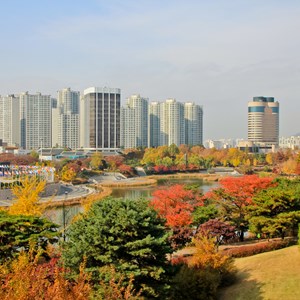 Ahn Eun sil/Shutterstock.com
Ahn Eun sil/Shutterstock.com
Seoul Olympic Park
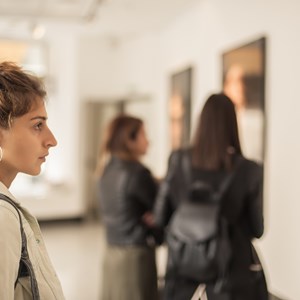 guruXOX/Shutterstock.com
guruXOX/Shutterstock.com
Leeum Samsung Museum of Art
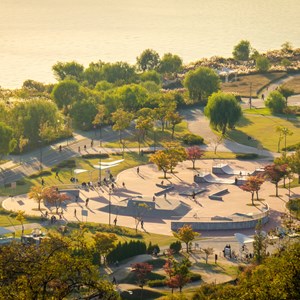 Lexter Yap/Shutterstock.com
Lexter Yap/Shutterstock.com
Yeouido Hangang Park
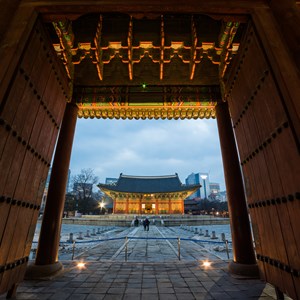 Kanuman/Shutterstock.com
Kanuman/Shutterstock.com
Deoksugung Palace
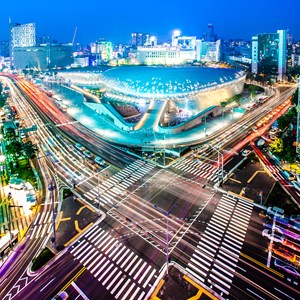 yochika photographer/Shutterstock.com
yochika photographer/Shutterstock.com
Dongdaemun Design Plaza
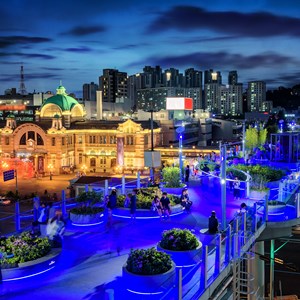 TRAVAL TAKE PHOTOS/Shutterstock.com
TRAVAL TAKE PHOTOS/Shutterstock.com
Seoullo 7017 Skygarden
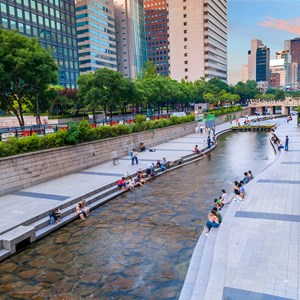 SS Pixels/Shutterstock.com
SS Pixels/Shutterstock.com
Cheonggyecheon
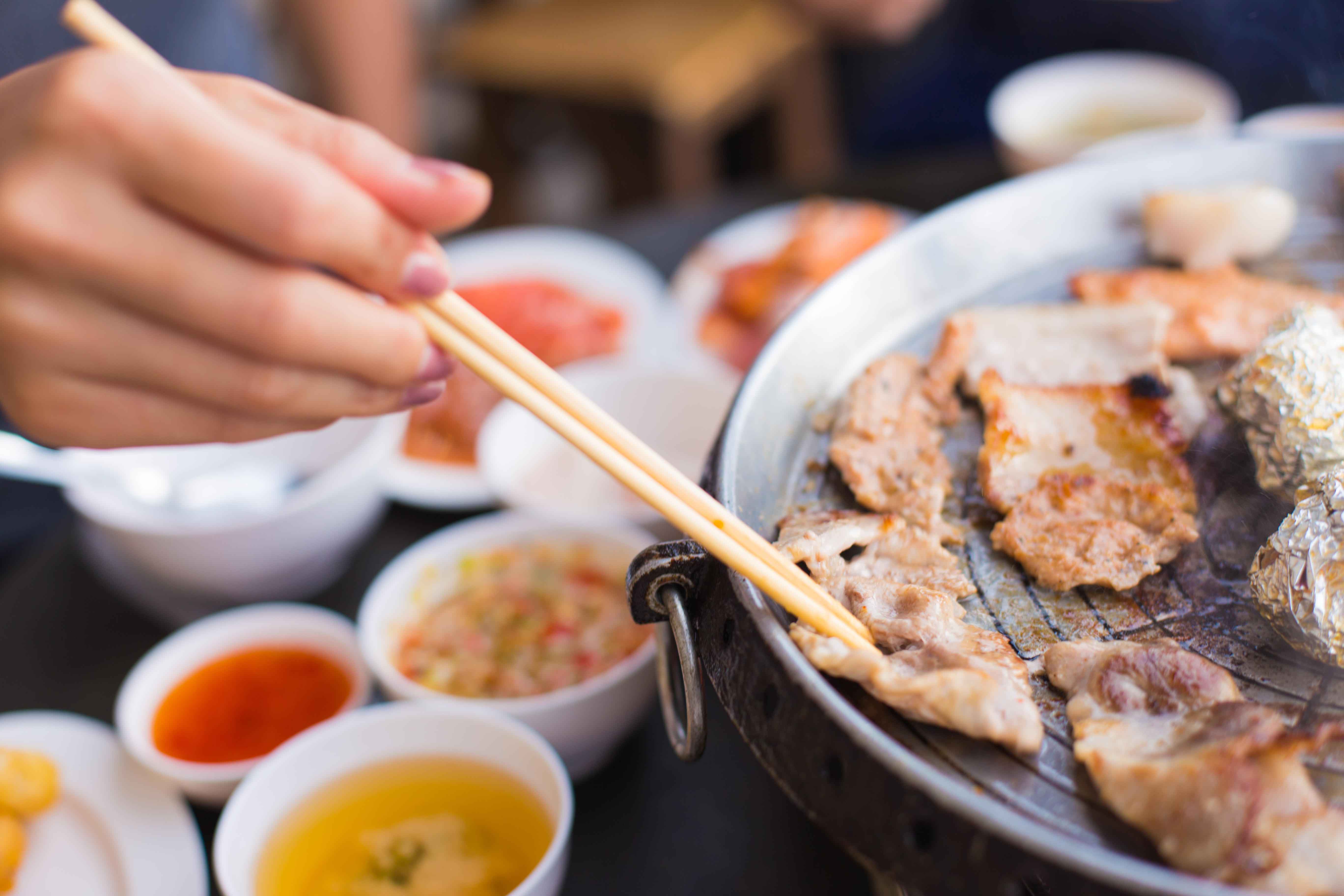 Indypendenz/Shutterstock.com
Indypendenz/Shutterstock.com
Dining
Much as expected from a busy Asian metropolis such as Seoul, there are plenty of places to enjoy all sorts of culinary creations. From traditional Korean restaurants to flavourful and endlessly varied street food, along with a plethora of eateries serving cuisine from all corners of the globe, hungry tourists should be more than adequately catered to.
In Korea, every sit-down meal is accompanied by kimchi (a spicy pickled cabbage) and some of the must-tries include bibimpab (vegetables and rice with an egg on top), Korean-style BBQ, and the many side dishes (banchan) that come with a staple of steamed rice.
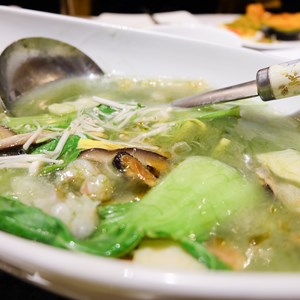 Kwanbenz/Shutterstock.com
Kwanbenz/Shutterstock.com
Mugyo-dong Bugeo-guk
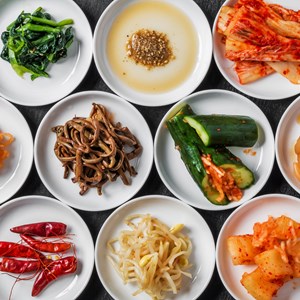 norikko/Shutterstock.com
norikko/Shutterstock.com
Ondal
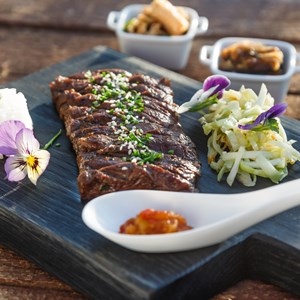 Konstantin Kopachinsky/Shutterstock.com
Konstantin Kopachinsky/Shutterstock.com
Samwon Garden
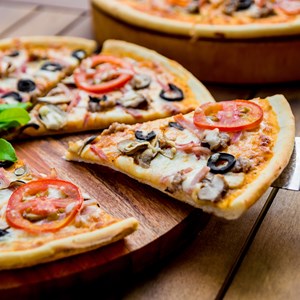 Romaset/Shutterstock.com
Romaset/Shutterstock.com
Di Matteoh Daehakro
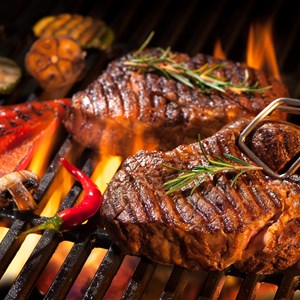 Alexander Raths/Shutterstock.com
Alexander Raths/Shutterstock.com
Braai Republic
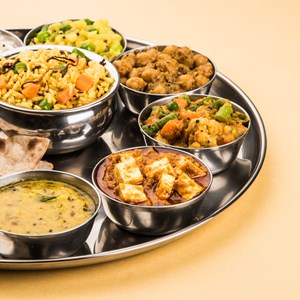 espies/Shutterstock.com
espies/Shutterstock.com
Jyoti Restaurant Sinchon
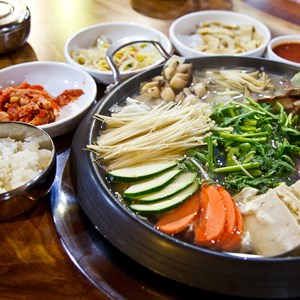 kongsak sumano/Shutterstock.com
kongsak sumano/Shutterstock.com
Philkyungjae
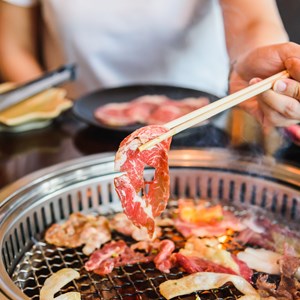 Woraphon Nusen/Shutterstock.com
Woraphon Nusen/Shutterstock.com
Food Court - Lotte Department Store
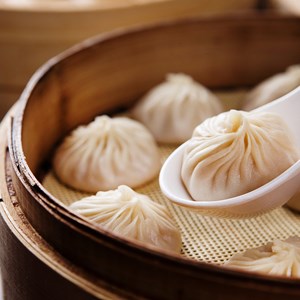 TMON/Shutterstock.com
TMON/Shutterstock.com
Myeongdong Kyoja
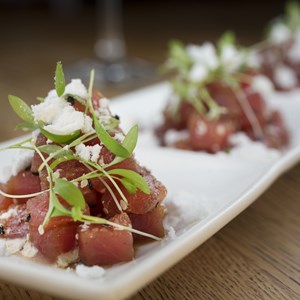 Alexandralaw1977/Shutterstock.com
Alexandralaw1977/Shutterstock.com
Jungsik Seoul
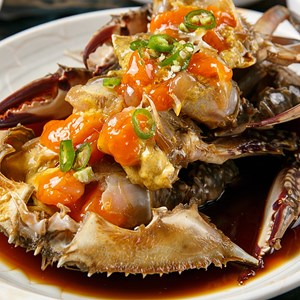 TMON/Shutterstock.com
TMON/Shutterstock.com
Pro Soy Crab
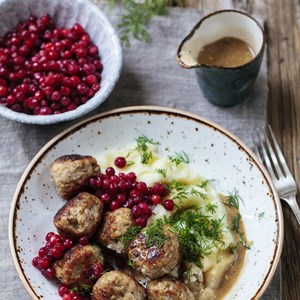 Magdanatka/Shutterstock.com
Magdanatka/Shutterstock.com
Hemlagat
 zarzamora/Shutterstock.com
zarzamora/Shutterstock.com
Jinju Kitchen Hamo
 Surasak Ch/Shutterstock.com
Surasak Ch/Shutterstock.com
Cafés
One thing that becomes instantly obvious when walking down any street in South Korea is that coffee shops are incredibly popular here. Both international chains and small independent cafés are dotted around the capital, providing a plethora of options to choose from.
Seoul is best known for its quirky-themed cafés, with some featuring cats and dogs as the focal points, and others showcasing very specific types of food or drink, like the 'poop café', Ddong Café, where beverages are served in toilet-shaped mugs and the menu offers poop-swirl shaped pastry and poo-shaped ice cream.
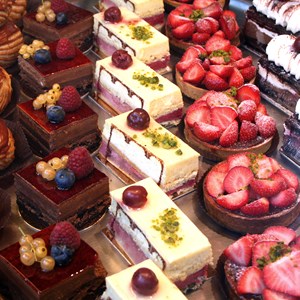 rnl/Shutterstock.com
rnl/Shutterstock.com
Passion 5
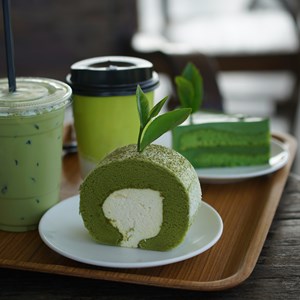 Alerte'/Shutterstock.com
Alerte'/Shutterstock.com
O’Sulloc Tea House
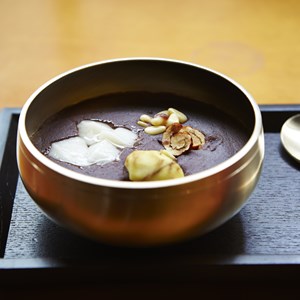 mnimage/Shutterstock.com
mnimage/Shutterstock.com
Seoulseo Duljjaero Jalhaneun Jip
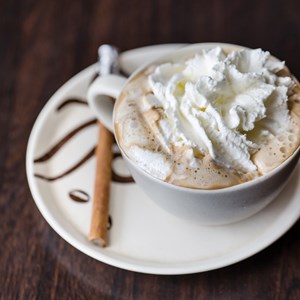 Nixx Photography/Shutterstock.com
Nixx Photography/Shutterstock.com
Hakrim Dabang
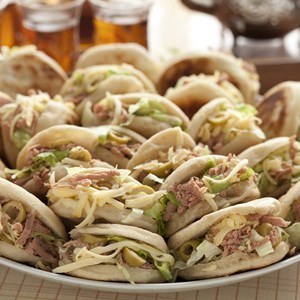 picturepartners/Shutterstock.com
picturepartners/Shutterstock.com
Casablanca Sandwicherie
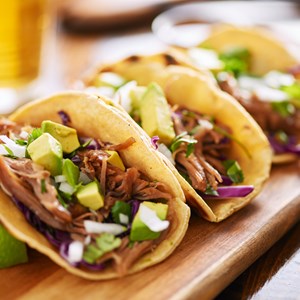 Joshua Resnick/Shutterstock.com
Joshua Resnick/Shutterstock.com
Vatos Urban Tacos
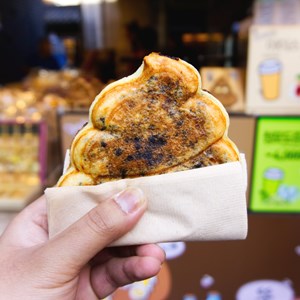 sekitarief/Shutterstock.com
sekitarief/Shutterstock.com
Tongin Market
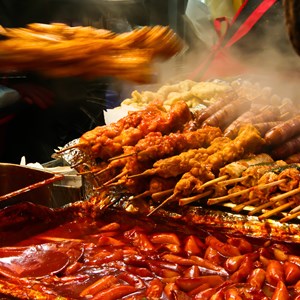 Atmostfear/Shutterstock.com
Atmostfear/Shutterstock.com
Gwangjang Market
 leon58/Shutterstock.com
leon58/Shutterstock.com
Rogpa Tea Stall
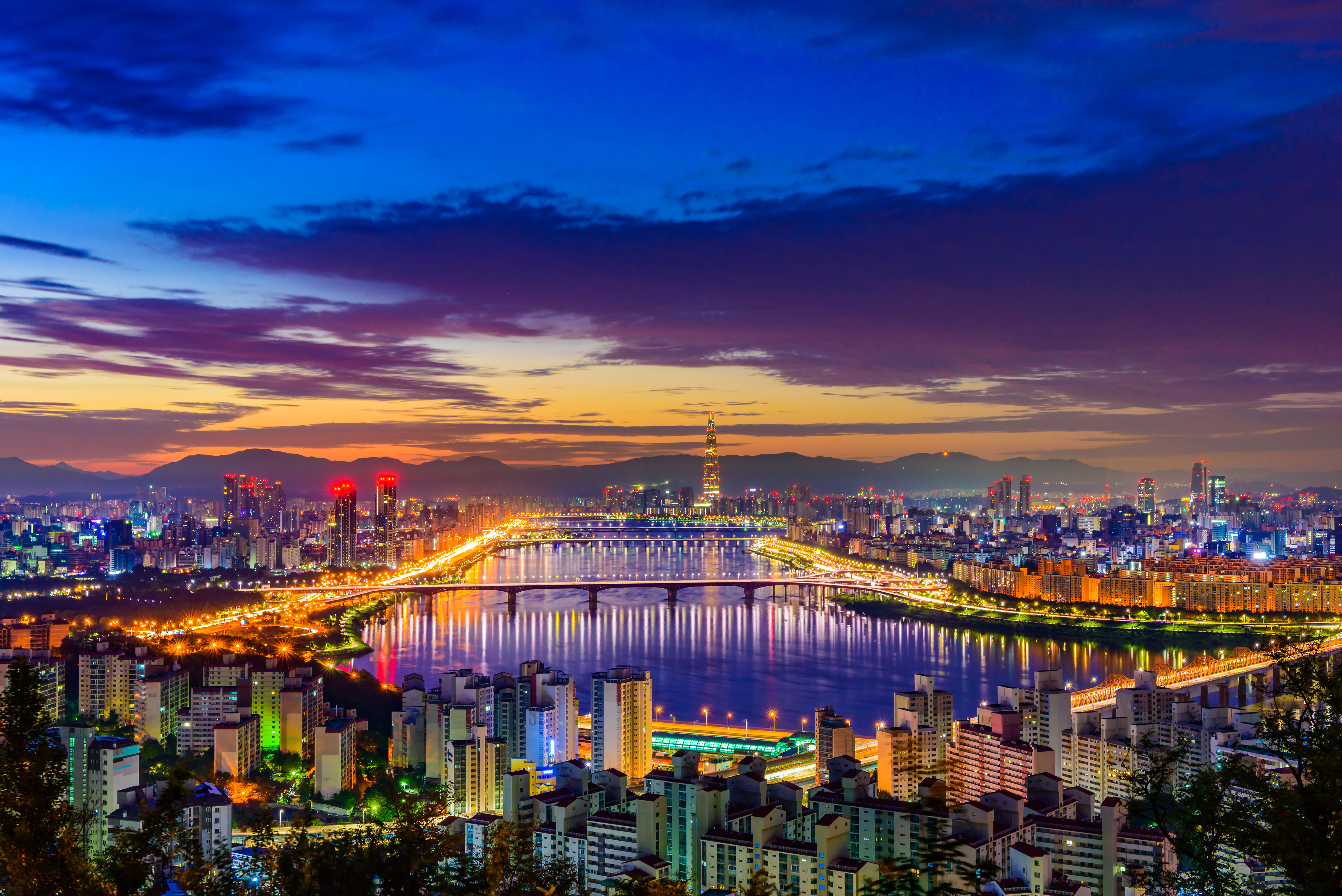 Teerachat paibung/Shutterstock.com
Teerachat paibung/Shutterstock.com
Bars & Nightlife
Nighttime entertainment in Seoul is really more about the neighbourhood than a particular establishment. Each area is known for its very specific vibe, and knowing what you're looking for might be a good idea before deciding on a location.
The go-to areas include: the stylish Hongdae district (popular with professionals), the bohemian Gangnam district (favoured by young, trendy twenty-somethings), and Itaewon (a location most favoured by internationals). Other popular haunts include low-key Myeongdong and Daehangno, as well as upscale Apgujeong-dong or Sinsadong.
Most clubs and bars remain open late into the night but one genre of entertainment really stands out after hours for those looking for an authentic experience of sorts, karaoke. Fall into one of the many Seoulian "noraebang" bars which are popular with locals to show off your pipes and have a sing-song.
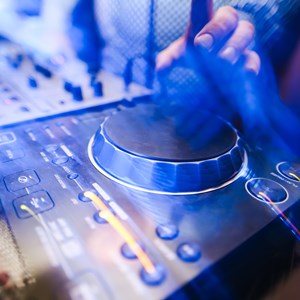 dmitrymoi/Shutterstock.com
dmitrymoi/Shutterstock.com
Club Octagon
 Jacob Lund/Shutterstock.com
Jacob Lund/Shutterstock.com
Living Room
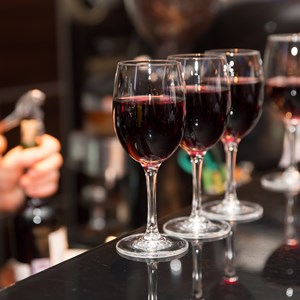 Aleksei Lazukov/Shutterstock.com
Aleksei Lazukov/Shutterstock.com
J.J. Mahoney's
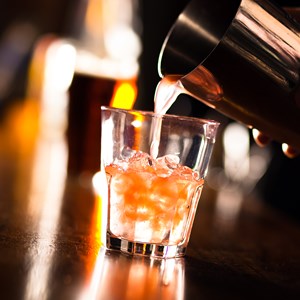 Minerva Studio/Shutterstock.com
Minerva Studio/Shutterstock.com
Lobby Lounge Bar
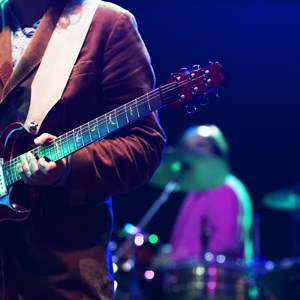 melis/Shutterstock.com
melis/Shutterstock.com
Club FF
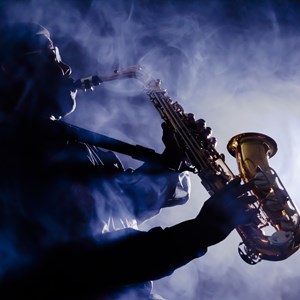 Geoff Goldswain/Shutterstock.com
Geoff Goldswain/Shutterstock.com
Club Evans
 Dragon Images/Shutterstock.com
Dragon Images/Shutterstock.com
Su Noraebang
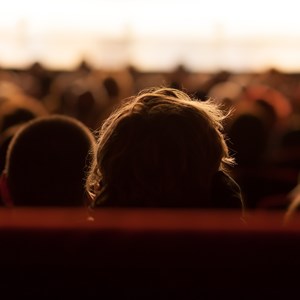 aerogondo2/Shutterstock.com
aerogondo2/Shutterstock.com
Theatre
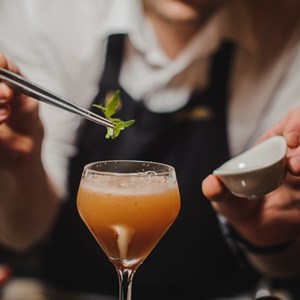 Maksim Fesenko/Shutterstock.com
Maksim Fesenko/Shutterstock.com
The Bungalow
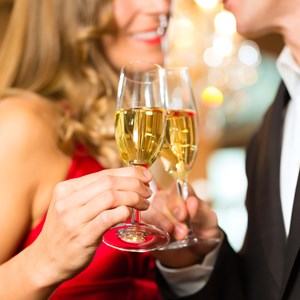 Kzenon/Shutterstock.com
Kzenon/Shutterstock.com
Glam Lounge
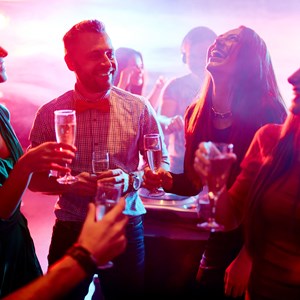 Pressmaster/Shutterstock.com
Pressmaster/Shutterstock.com
Cakeshop
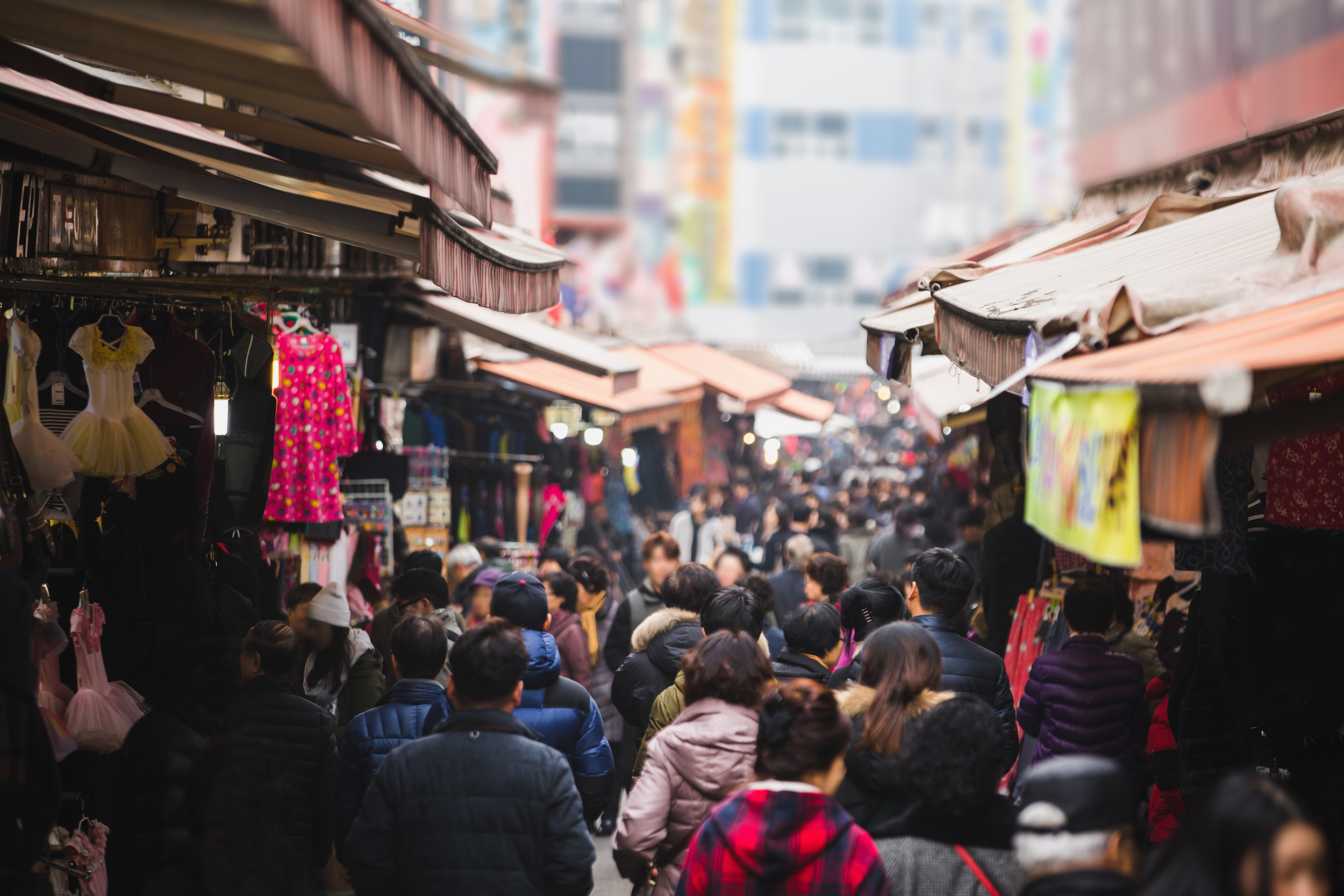 Scharfsinn/Shutterstock.com
Scharfsinn/Shutterstock.com
Shopping
Seoul is absolutely the place for shopping enthusiasts. From street markets to high-end shopping malls, the Korean capital has it all. Some of the most popular shopping areas are Myeongdong, Itaewon, and Insadong - each with its own distinctive character.
This metropolis is filled with shopping opportunities at every turn. Markets worth a stop include Namdaemun and Dongdaemun, the Gyeongdong Oriental Medicine Market selling all sorts of traditional miracle cures (Chegidong Station) and Noryangjin Fish Market, even if it's only to watch the traders in action.
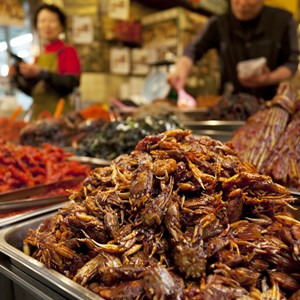 qingqing/Shutterstock.com
qingqing/Shutterstock.com
Namdaemun Market
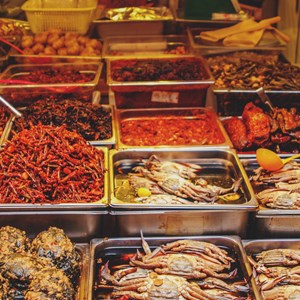 mTaira/Shutterstock.com
mTaira/Shutterstock.com
Dongdaemun Market
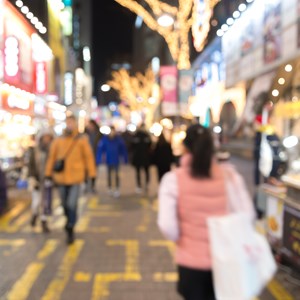 Silverfoxz/Shutterstock.com
Silverfoxz/Shutterstock.com
Myeong-dong
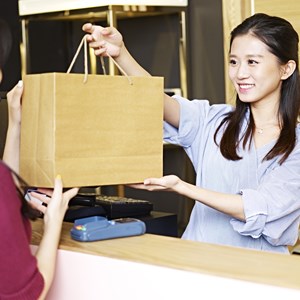 imtmphoto/Shutterstock.com
imtmphoto/Shutterstock.com
Itaewon
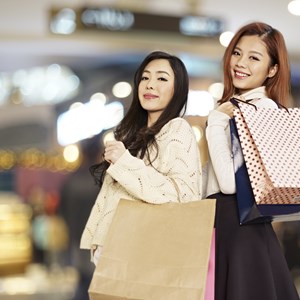 imtmphoto/Shutterstock.com
imtmphoto/Shutterstock.com
Apgujeong
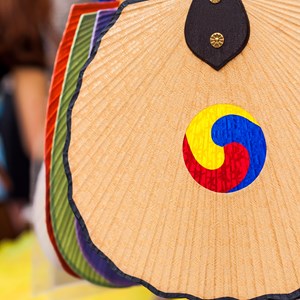 Vincent St. Thomas/Shutterstock.com
Vincent St. Thomas/Shutterstock.com
Insadong
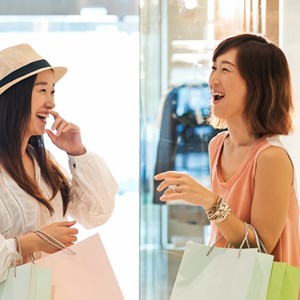 Dragon Images/Shutterstock.com
Dragon Images/Shutterstock.com
COEX Mall
 petrunjela/Shutterstock.com
petrunjela/Shutterstock.com
Yongsan Electronics Market
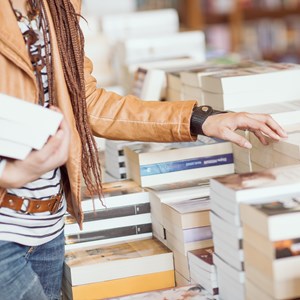 luminaimages/Shutterstock.com
luminaimages/Shutterstock.com
Kyobo Book Centre Gwanghwamun
 elwynn/Shutterstock.com
elwynn/Shutterstock.com
Ewha Women’s University Fashion Street
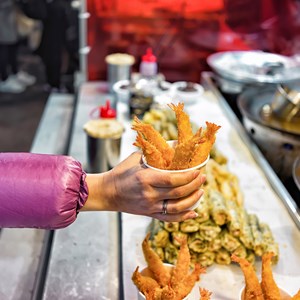 Roman Babakin/Shutterstock.com
Roman Babakin/Shutterstock.com
Hongdae Free Market
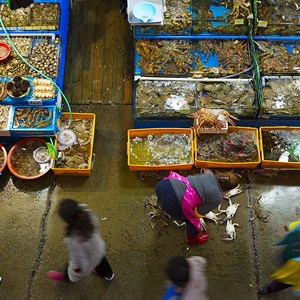 longtaildog/Shutterstock.com
longtaildog/Shutterstock.com
Noryangjin Fish Market
 nenetus/Shutterstock.com
nenetus/Shutterstock.com
Åland
 imtmphoto/Shutterstock.com
imtmphoto/Shutterstock.com
Gotomall
 sekitarief/Shutterstock.com
sekitarief/Shutterstock.com
Tongin Market
 Atmostfear/Shutterstock.com
Atmostfear/Shutterstock.com
Gwangjang Market
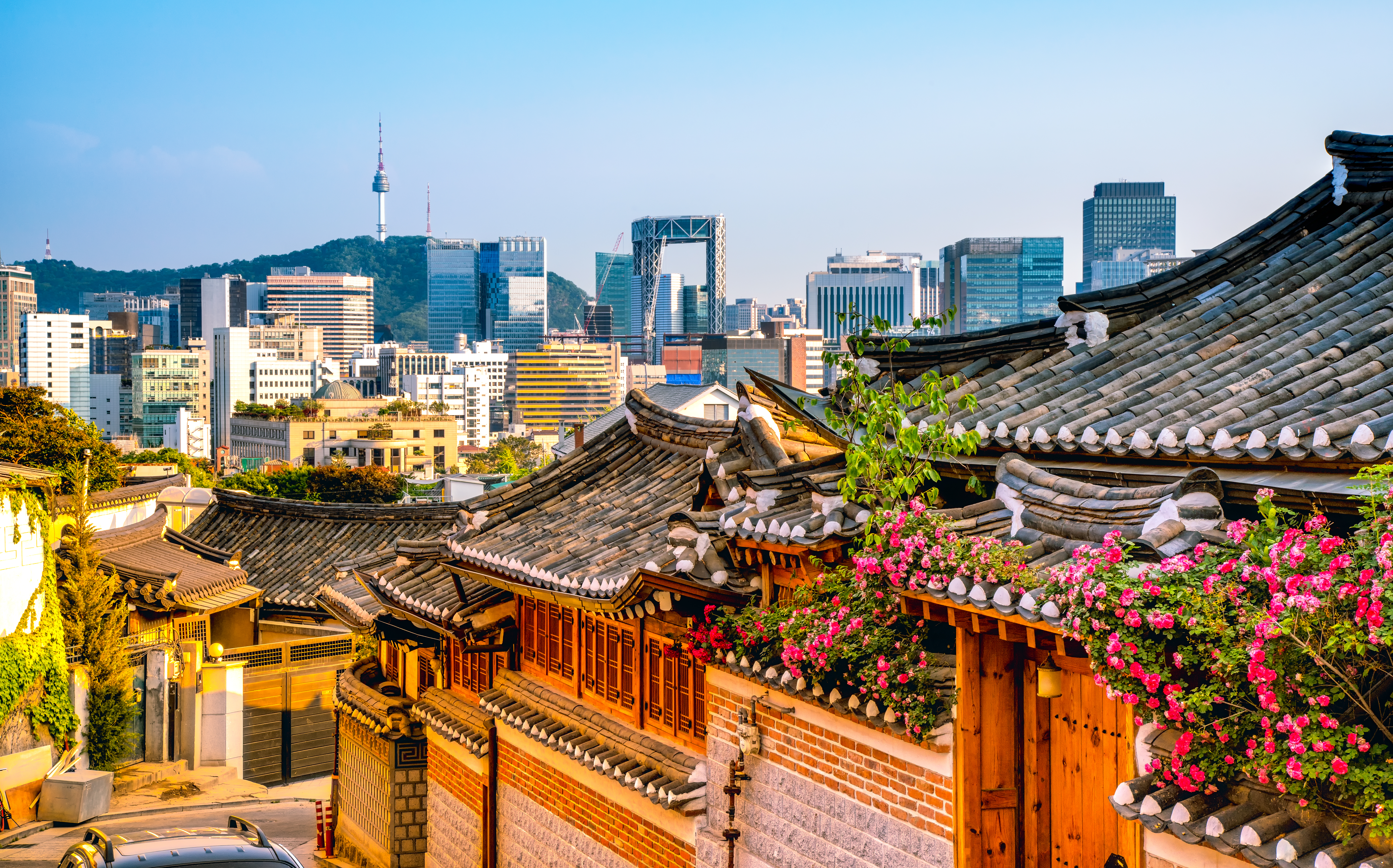 FenlioQ/Shutterstock.com
FenlioQ/Shutterstock.com
Tourist Information
Incheon International Airport
Incheon International Airport, one of the busiest airports in the world is approximately a one hour drive from downtown Seoul by bus or taxi.
Airport buses normally stop directly outside the airport building. Limousine buses run not only to Seoul, but also connect the airport to other provincial cities. The Limousine bus runs to and from the airport every 10-15 minutes and stops at most of the major hotels. You can buy a bus ticket from ticket booths next to the bus stops outside on the pavement.
Taxis are available from stands no.16-21 on the arrivals floor. For a more economic alternative, private cars can be hired through the Grab app after registering for an account.
The other airport in Seoul, Gimpo International Airport is much smaller but closer to the centre of town. It acts as Seoul's secondary airport.
Address: Incheon International Airport, Yongjongdo
Email: incheon.airport.mail@gmail.com
Phone: +82 2 1577 2600
Website: www.airport.kr
More Information:
Passport/Visa
Citizens of many countries including the US, UK and Canada can travel to South Korea for tourism purposes visa-free, for stays from 30 up to 180 days. Citizens of most countries in Africa and Asia however will need to apply for a visa in advance. Passports will need to be valid for at least six months starting from the planned date of arrival.
Address:
Email:
Phone:
Website:
More Information:
Best Time to Visit
The best time to visit Seoul is typically between April and June, whilst spring is in full swing and the cherry blossoms are raining down in the parks. This is also a good time of year to go and experience the many festivals that take place there every year.
September to November is another promising time to visit the city as the climate is pleasant and mild, unlike the weather in the preceding Summer months which are hot and wet.
Winters are cold but may appeal to some winter sports fans as there is more often than not a flurry of snow towards the end of the year and into the next.
Address:
Email:
Phone:
Website:
More Information:
Port of Incheon
The port of Incheon is the leading base station for exchange in the Yellow Sea region. Although it is not as large as the port of Busan (South Korea's main port) it has been growing in significance since its relatively recent conception in 2005. The New Incheon International Ferry terminal is currently being expanded, paving the way for more tourism and better connectivity.
Address: IBS Tower 31-35F, Central-ro 263, Yeonsu District, Incheon
Email:
Phone: +82 32 890 8000
Website: www.icpa.or.kr/eng/index.do
More Information:
Public Transport
The Underground is clean, efficient and operates from approximately 5.30am to midnight non-stop every day. All stations display signs in both Korean and English. You can buy your ticket at the ticket vending machine. Check the website for details (www.seoulmetro.co.kr).
Seoul Bus Station is a central hub for transportation. Standard buses are frequent and inexpensive. You can pay your fare either by scanning your T-money card or paying in cash when entering the bus. Make sure to have change since you cannot pay with bigger bills.
There are several city buses operating in Seoul. The 'Blue Bus' for example, which connects inner Seoul with the outer suburban areas and 'The Yellow Bus' (Circular Line) which goes in a circular pattern around the very central part of Seoul. There is also the Red Bus (Wide Area Line), Maeul Bus (Local Bus) and the Green Bus (Branch Line).
Address:
Email:
Phone:
Website:
More Information:
Taxi
Travelling by taxi in Korea is generally an affordable means of transportation. Taxis come in two varieties, regular and deluxe. It is easy to distinguish between the two as the latter, the more expensive of the two is black with a golden stripe colour scheme.
There is also the International taxi service which was created especially for foreign tourists in Seoul who cannot speak Korean. They are orange with a 'Haechi' (the Seoul mascot) painted on the side of it.
There is also a water taxi service for river crossings. There are a total of 17 water taxi stations located along the Hangang River.
Address:
Email:
Phone: +82 2 1644 2255
Website: www.intltaxi.co.kr
More Information:
Post
Korea Post is the name of the national postal service which deals with domestic and international deliveries.
Red post boxes may be found all around Seoul and there are several branches of Korea Post dotted around the city centre, most of which lie North of the River Hangang.
Seoul Central Post Office is the best place to go to deal with international deliveries as it is the largest of the lot.
Stamps can be bought in official kiosks, supermarkets and other such licensed retailers. Alternatively, a label may be downloaded and printed out on the Korea Post website.
Address: 70 Sogong-ro, Myeong-dong, Jung District, Seoul
Email: kpostbank@naver.com
Phone: +82 2 6450 1114
Website: www.koreapost.go.kr/eng/index.do
More Information:
Health
Seoul is home to some of the best medical facilities and professionals in the world. The city boasts one of the highest cancer survival rates and access rates recognised by the OECD. The universal healthcare system in South Korea is particularly good and the Medical Referral Service (MRS) for foreigners is helpful at putting visitors in contact with the correct, English speaking staff. Seoul National University Hospital is one of the best for internationals.
There are many different pharmacies in Seoul and you can find one on nearly every major street or road. They are marked with a sign that reads “약” or “yak” which means “medicine”. Most pharmacies are closed on Sundays but many located in large shopping malls, subway stations and bus terminals remain open all week.
A 24-hour information service is available by dialling 120 or 1339.
Address: 101 Daehak-ro, Jongno District, Seoul
Email: international@snuh.org
Phone: +82 2 2072 0505
Website: www.snuh.org/global/en/main.do
More Information:
Telephone
Country code: +82
Area code: 02
Address:
Email:
Phone:
Website:
More Information:
Electricity
Round two-pin type C plugs. 220V and 60Hz
Address:
Email:
Phone:
Website:
More Information:

